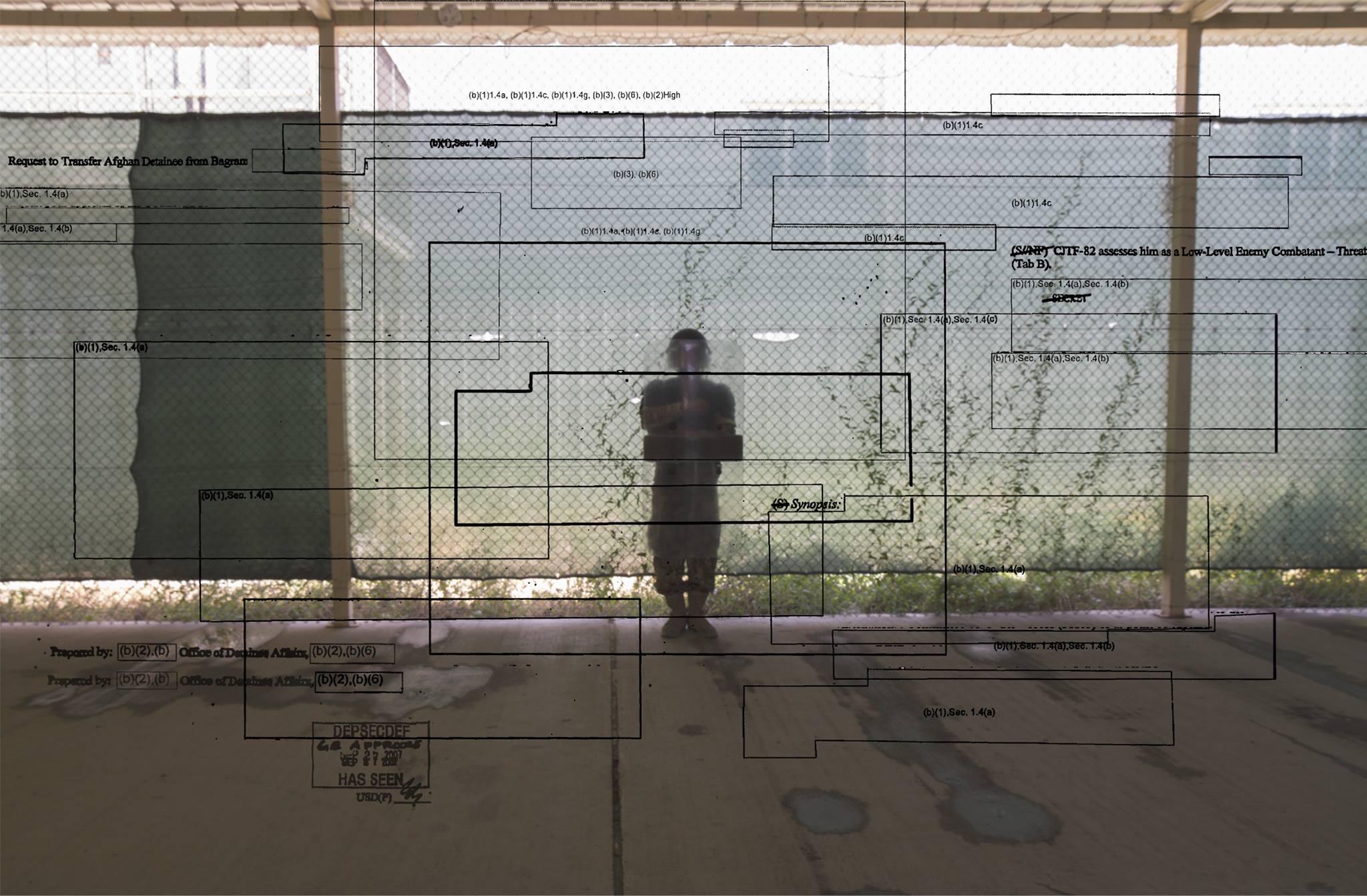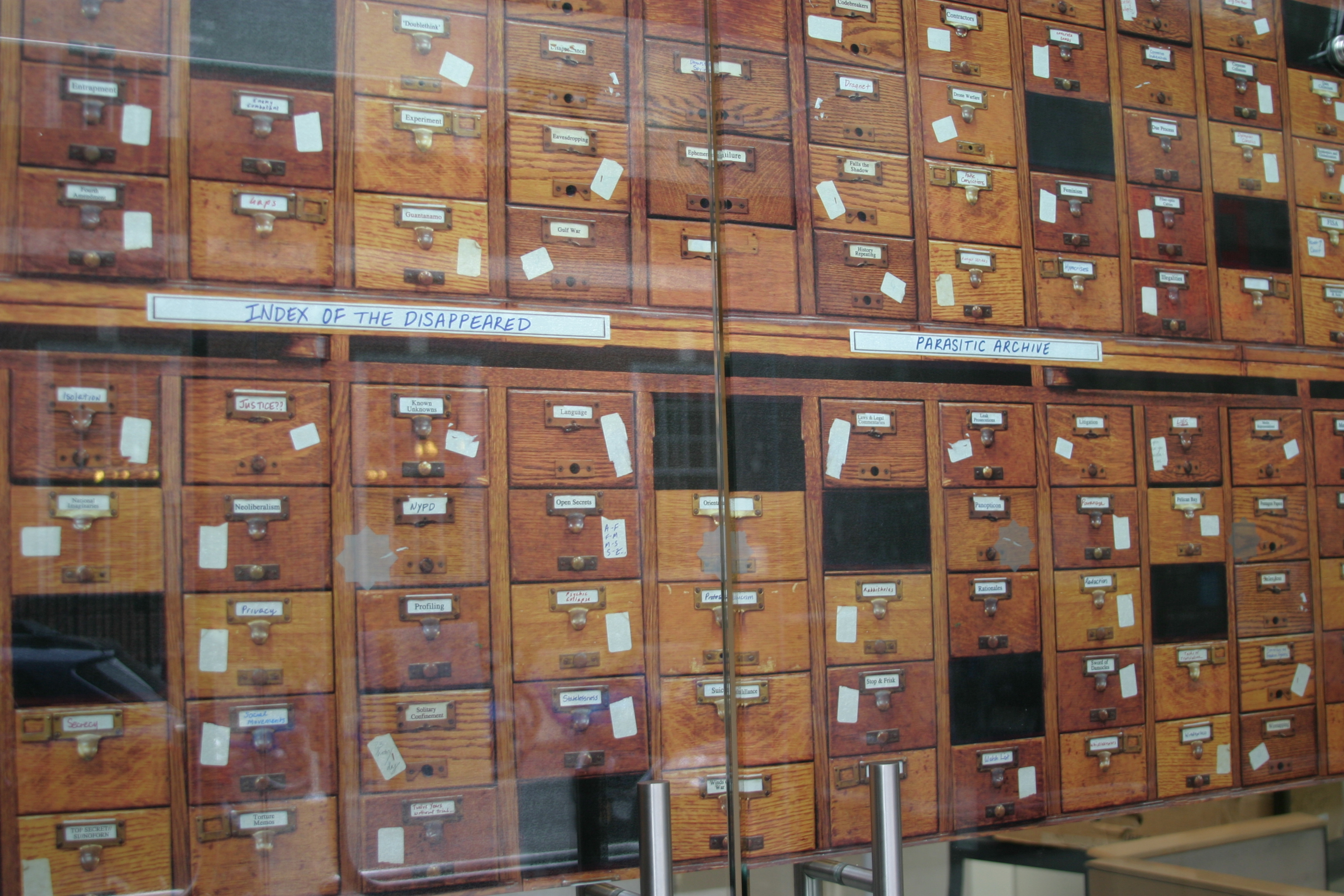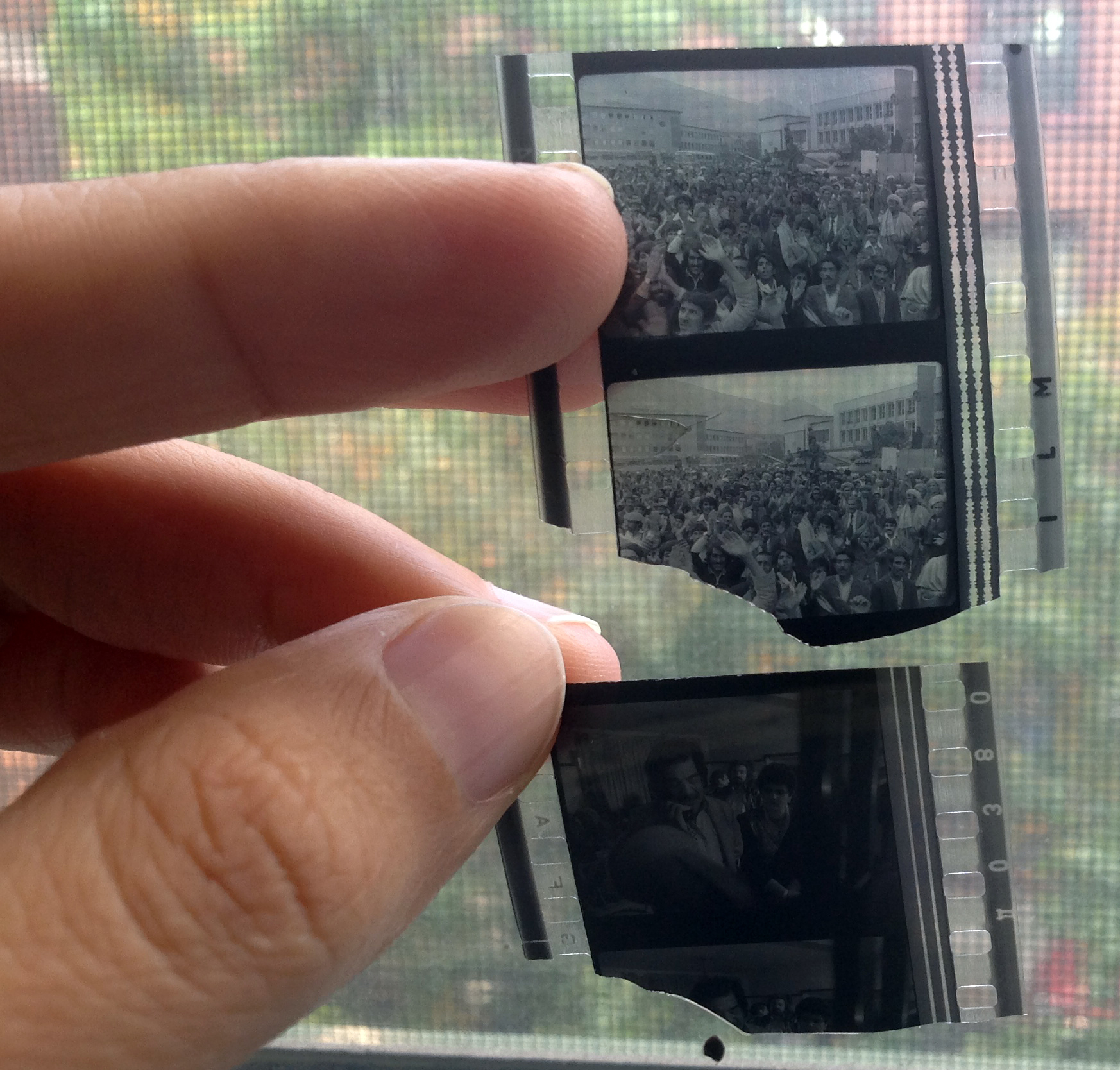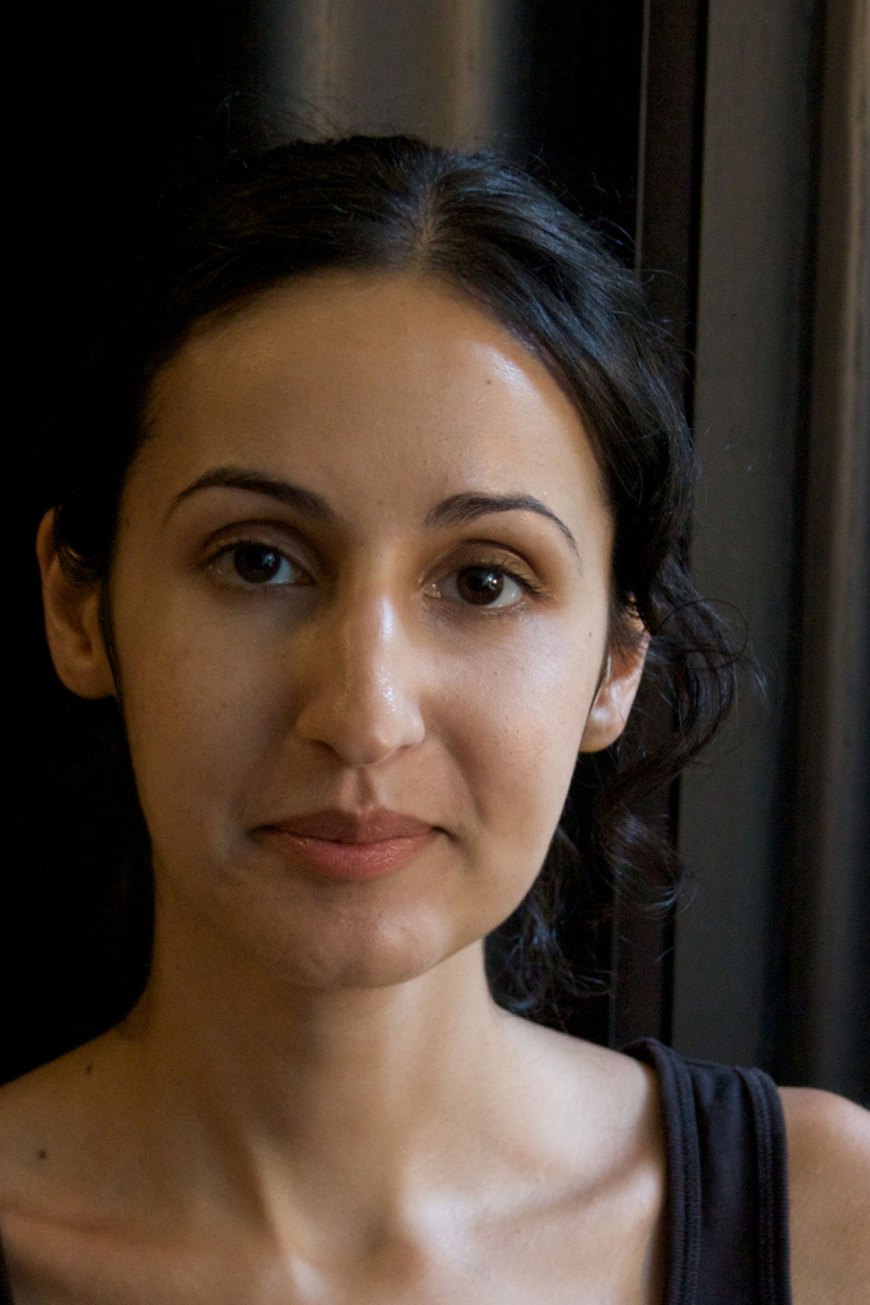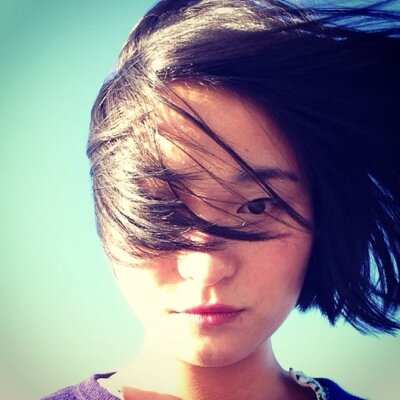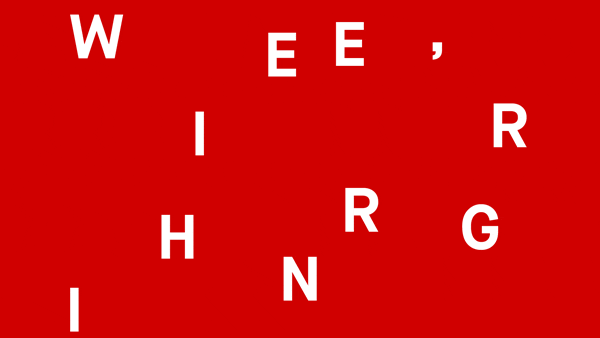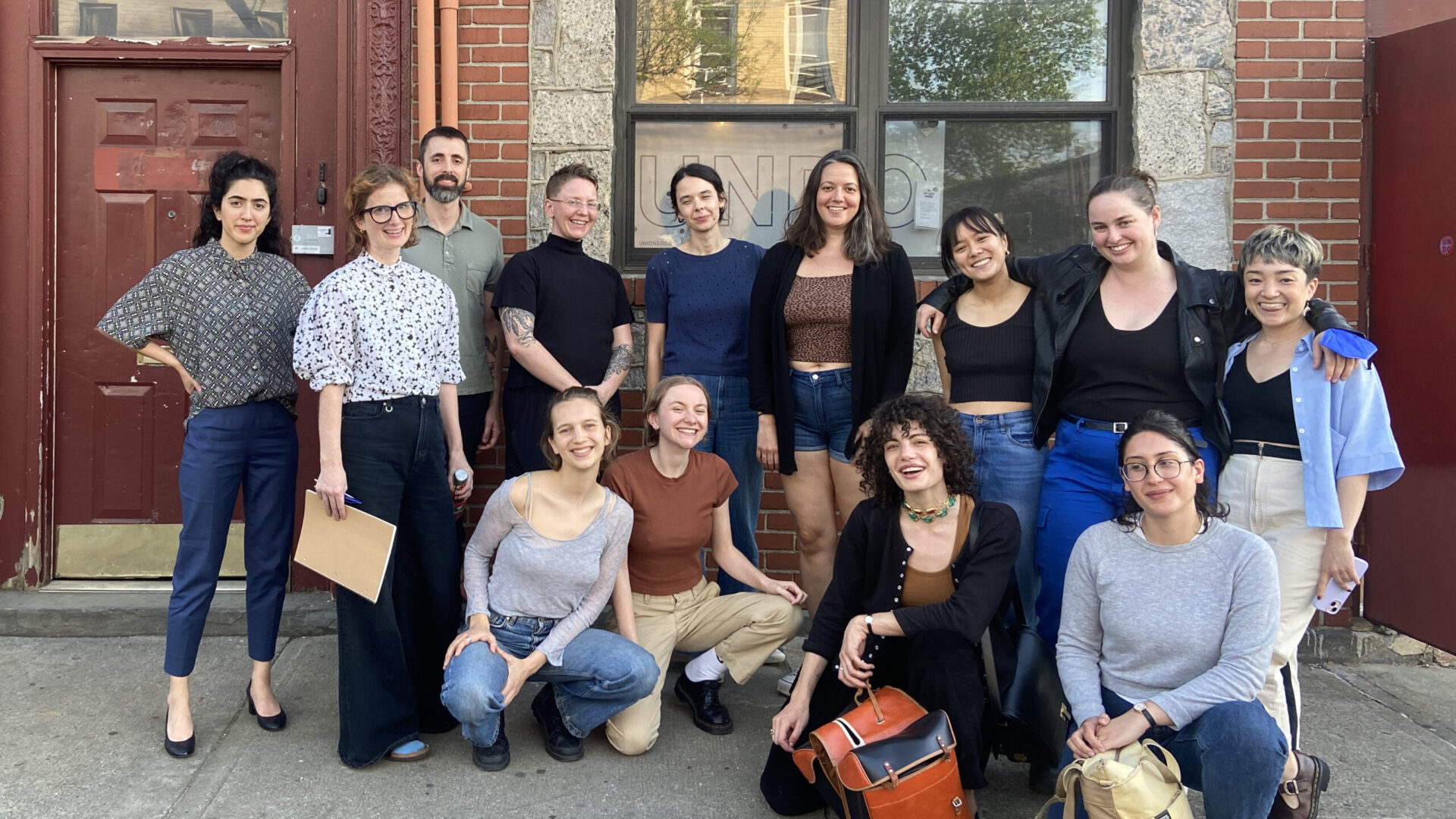Apr 5, 2018 at 7:30 pm
Invisible Images
Screening to be followed by discussion with Mariam Ghani and Xiaoyu Weng
How do we make images of the invisible, archive what has been removed from records, or build a documentary around what is not being said? These questions underpin much of artist, writer and filmmaker Mariam Ghani’s work, which is concerned with the unseen, the obscured, the unsaid, the unsayable, and the erased.
On April 5th, UnionDocs is proud to welcome Ghani to present two projects: the 2016 film The Seen Unseen, produced by the experimental archive Index of the Disappeared, a long-term partnership between artists Mariam Ghani and Chitra Ganesh, and an excerpt from the work-in-progress What We Left Unfinished, a feature-length documentary edited by Ian Olds, which developed from Ghani’s long-term engagement with the national film archive of Afghanistan.
Program
The Seen Unseen
12 min., 2016
The Seen Unseen (NYC premiere) is part of a larger Index of the Disappeared research project looking into the afterlives of former black sites. The term “black site” is currently understood to refer to a secret prison operated by the CIA as part of their extrajudicial rendition, interrogation, and torture program, active between 2001 and 2009. However, any place that has been temporarily made invisible by (tacit or explicit) agreement to not see something that clearly exists can also be understood as a black site – including “temporary holding” zones used for extrajudicial interrogation, from Homan Square in Chicago to the Forward Operating Bases deployed by the US military. When a site becomes a black site, a place becomes a non-place. Real buildings, people, and territories are rendered invisible through a sort of consensual hallucination. What happens when this process is reversed? When a place begins to insist on its reality, despite the contracts that mandate its existence as nothing more than a rumor, how do those buildings, people and territories emerge from the black? Is it ever possible to look at a former black site without seeing it through the veil of its previous life in the unseen? The Seen Unseen both records the circumlocutions through which open secrets remain officially denied, and proposes visual strategies for marking the ways in which seemingly ordinary places have become opaque. More on the Index: http://www.mariamghani.com/work/626
What We Left Unfinished (Work in Progress)
30 min., 2018
What We Left Unfinished is a long-term research, film, exhibition and book project centered around five unfinished Afghan feature films shot, but never edited, between 1978 and 1992: years that encompass the Afghan Communist coup d’état, attempted reforms that met bitter rural resistance, a series of internal purges and assassinations, the Soviet invasion and withdrawal, a five-year attempt at national reconciliation, the handover of power to a mujahidin coalition, and finally dissolution into civil war. From the unfinished films commissioned, produced and canceled by various iterations of the Afghan state, in various moments of the Afghan Communist project, we can reconstruct not the truths, precisely, of how the state existed and acted in those moments, but rather its most important fictions: its desires and fears, ambitions and ghosts. In the imaginary presented by most finished films of the period, we see the ideal People’s Democratic Republic that could have been, but wasn’t; in the unfinished films, the reality – a utopian project secured by violent force – lingers like a shadow, just barely concealed behind allegories and codes. The world around the films, where filmmaking itself was a dangerous enterprise, seeps into the world onscreen.
42 min
Mariam Ghani is an artist, writer, and filmmaker. Her work looks at places and moments where social, political, and cultural structures take on visible forms. Long-term collaborations include the experimental archive Index of the Disappeared, with Chitra Ganesh, the video series Performed Places, with choreographer Erin Kelly and composer Qasim Naqvi, and the Afghan Films online archive, with Pad.ma. Solo and collaborative exhibitions include the Queens Museum of Art, the Saint Louis Art Museum, the Indianapolis Museum of Art, the Rogaland Kunstsenter, and the Gatchina Museum. Notable group exhibitions and screenings include dOCUMENTA 13, the Liverpool Biennial, the Sharjah Biennial, the Asian Art Biennial, the Dhaka Art Summit, the Rotterdam Film Festival, CPH:DOX, the National Gallery in DC, the Secession in Vienna, the CCCB in Barcelona, and the Met Breuer, MoMA and the Guggenheim in New York. Recent texts have been published in Foreign Policy, Ibraaz, Triple Canopy, and the readers Critical Writing Ensembles, Dissonant Archives, Assuming Boycott, and Social Medium: Artists Writing 2000-2015. Ghani holds a B.A. in Comparative Literature from NYU and an MFA from the School of Visual Arts, and has received a number of awards, grants, and fellowships, most recently from Art Matters, Creative Capital, Yale Law, and the Center for Constitutional Rights. She is currently a visiting scholar at the Center for the Humanities at the Graduate Center, CUNY, and a fellow at the New York Public Library. mariamghani.com
Xiaoyu Weng is an Associate Curator at the Solomon. R. Guggenheim Museum in New York. Recently, she organized the exhibition Tales of Our Time at the museum that received critical acclaim by many media channels, including the New York Times. She previously served as the director and curator of Asia Programs at Kadist Art Foundation (Paris/San Francisco). In addition to her institutional affiliations, Weng has organized numerous exhibitions and events for international venues such as the Asian Art Museum of San Francisco, the CCA Wattis Institute for Contemporary Arts and the Yerba Buena Center for the Arts in San Francisco, the University of California Berkeley Art Museum and Pacific Film Archive, Galleria d’Arte Moderna e Contemporanea di Bergamo in Italy, the Central Academy of Fine Arts Museum in Beijing, the Minsheng Art Museum in Shanghai, Guangdong Times Museum in Guangzhou, and the Witte de With Contemporary Art Center in Rotterdam, the Netherlands. Weng’s essay “Working with Archive” is the winning entry of the Artforum Critical Writing Award in 2011. She is Contributing Editor for Leap Magazine, Beijing.


